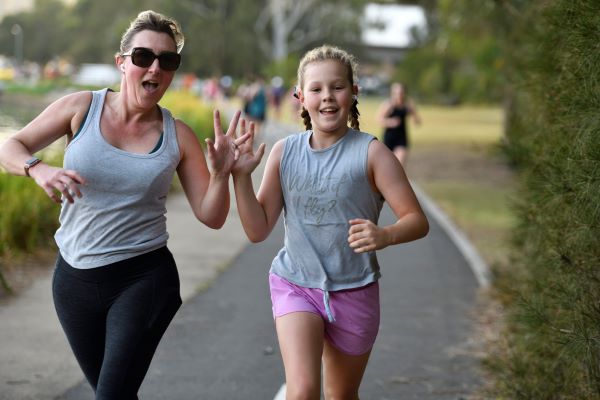-
In the past few years there has been a lot of media coverage about the escalating numbers of children who are overweight, inactive and risk long-term health problems. In addition, children who are behind their peers in physical development when they start school are more likely to face social, emotional and academic challenges.
Will regular exercise in the first years of life make a difference?
Unfortunately the rising number of children who are overweight is more than just statistics on a page. Worldwide statistics reveal that there has been a dramatic rise in childhood obesity in the past 20 years, and Australian children are not exempt. The latest research indicates that children who begin school with delayed physical development risk school failure and children who are obese risk chronic health problems in later life. The risk is compounded if a child’s stress levels are elevated, perhaps by years of unkind teasing at school by peers. As a result, experts agree that these issues have become a major health priority both nationally and internationally.
What can parents do?
It is evident that good health habits and regular physical activity established during the early years is likely to have long term benefits to both learning and health.
In order to combat the rising concerns over poor health in children, most experts recommend that children eat a healthy diet and engage in 60 - 90 minutes of daily exercise. A large proportion of children’s physical activity is incorporated in their daily life: in their playing, general activities, recreation, sport and family life. Exercise should include moderate intensity, continuous sustained bouts of physical activity and activity that reinforces a range of fundamental motor skills. Sedentary behaviours, such as watching television and playing computer games, should be reduced.
Exercise can begin from birth. Tummy time is a great contributor to muscle strength and the development of fundamental movement skills. Once crawling, babies should be involved in a range of movement opportunities that allow them to safely engage with and explore their environment.
Toddlers need to be involved in exercise that is sustained, prolonged, and where movement is not restricted. The local park provides a great open space for running on the grass, exploring the gardens, swinging, spinning and tumbling over.
Two to five year olds should have the opportunity to participate in 30-45 minutes of structured physical activity daily as well as an hour of unstructured physical activity both indoors and outdoors.
Regular exercise ensures children stay fit, healthy and develop the fundamental motor skills essential for functional movement and learning in the classroom. It is a key ingredient to a happy, successful and healthy life.
For more information, Dr Jane Williams suggests reading Smart Start: how exercise can transform your child’s life by Margaret Sassé.
Find out more about exercise for kids at Gymbaroo.
How exercise can transform your child’s life

-
Stretches for gym enthusiasts
8 stretches to help you cool down from workouts
-
Stretches for office workers
Stretch out your back and relieve stress
-
Stretches for runners
Stretch your legs, hips and back after a long run
-
How to walk 10,000 steps
Discover how to easily reach your goal of 10,000 steps daily.
-
Everything you need to know about parkrun
Been wondering what a parkrun looks like? Where do you go? What do you do? How do you sign up? Find out here.
-
Five ways to exercise when on a budget
You don’t need to spend money on gym memberships just to meet your fitness goals. Here are five free ways to stay healthy and active when you’re living on a budget.
Subscribe to receive the best from Live Better every week. Healthy recipes, exercise tips and activities, offers and promotions – everything to help you eat, move and feel better.
By clicking sign up I understand and agree to Medibank's privacy policy






